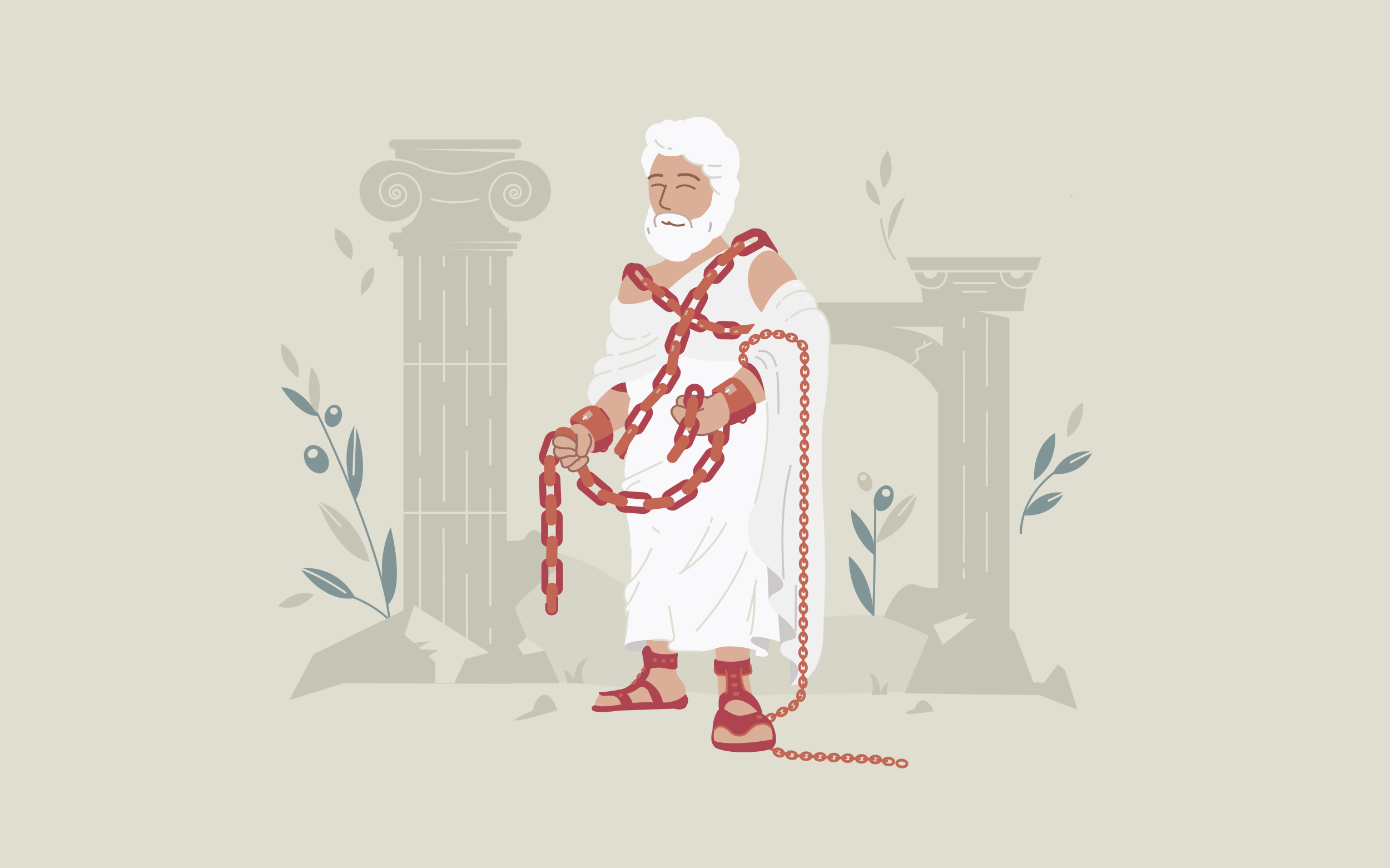# 02 The Richest Stoic
*Week 1, Day 1 of [[00 The Wealthy Stoic Course]]* #source/course
<< [[01 Welcome To The Wealthy Stoic!|Back]] | [[03 The Two Ways To Get Rich|Next]] >>

## Content
> “It is better to starve to death in a calm and confident state of mind than to live anxiously amidst abundance.” — [[Epictetus]]
To begin to understand how the philosophy of Stoicism can help you become wealthy, we will start with the richest of the Stoics: **Epictetus**.
By every modern metric that we today associate with “being rich”—a high net worth, owning expensive material possessions, having a big house, exotic travel—Epictetus was extremely impoverished.
Indeed—born in 55 AD, Epictetus was born a slave.
In Greek his name is quite literally “acquired one.” He was born the son of a slave woman in a region that, as part of the Roman Empire, was subject to its brutal laws. For instance, one of those laws, _Lex Aelia Sentia,_ made it impossible for slaves to be freed before their _thirtieth_birthday. That law was passed by the emperor Augustus, who had not one but _two_ advisors who were Stoic philosophers, Athenodorus and Arius Didymus. Then, as a boy, Epictetus was purchased by a man named Epaphroditus, who was Nero’s secretary and served alongside Seneca (who we will learn more about next week). It’s a disturbing irony that two emperors with three Stoic philosophers advising them stole three decades of Epictetus’s life.
Rome was not known for treating its slaves gently. And even by Roman standards, Epictetus had a cruel master. There’s one story of Epaphroditus twisting Epictetus’ leg with all his might, while Epictetus calmly warned him about taking it too far. When the leg snapped, Epictetus only smiled, looked at his master, and said, “Didn’t I warn you?”
For the rest of his life, Epictetus walked with a limp. While his gait was permanently slowed, Epictetus remained unbroken by the incident. “Lameness is an impediment to the leg,” he would later say, “but not to the will.”
Epictetus would choose to see his disability as only a physical impairment. The idea that we have a choice in how we perceive the things that happen to us would come from this personal experience, and it would come to define the core of Epictetus’s philosophical beliefs. Those beliefs would be strengthened over time by his observations of other’s experiences.
In Nero’s court, Epictetus got front row seats to all of the opulence, insanity, and contradictions of the Roman Empire and the Roman elite. He’d later tell the story of a man who came to Epaphroditus complaining about how miserable he was now that he was down to his last million and a half sesterces (at least $3M in today’s dollars). “And,” Epictetus said, “what did Epaphroditus do – laugh at him as you are laughing now? No, he was appalled, and said, ‘Dear man, how did you keep silent up till now? How have you endured it?’”
It was equally informative for Epictetus to watch Epaphroditus—this man who had incredible power over him—contorting himself to remain on Nero’s good side, down to flattering even the man’s cobbler in hope of winning favor. Epictetus saw aspiring candidates for the office of consul working themselves to the bone to earn the position. He saw the gifts that were expected, the spectacles that had to be put on, the chain of offices that needed to be held for years in order to get ahead.
_That’s freedom?_ he must have thought. _That’s wealth?_ “For the sake of these mighty and dignified offices and honors you kiss the hands of another man’s slaves,” he said, “and thus the slaves of men who are not free themselves.”
The rich in Rome were the same as the rich today: Despite their piles of money, their hope of gaining more and more turns them into supplicants.
What we know is that Epictetus was horrified by what he saw in the palaces and imperial offices of Rome, and resolved to live differently. “It is better to starve to death in a calm and confident state of mind,” he would say, “than to live anxiously amidst abundance.”
What Epictetus came to learn and internalize—what was so central to his survival as a slave—was that wealth is not a dollar amount. It’s not exotic vacations or shiny objects. It’s not a job title or a big house.
In 46 A.D., Cicero published _The Stoic Paradoxes._ These were not paradoxes in the logical sense, only in that they flew in the face of common senses. One of the primary Stoic paradoxes, Cicero wrote, is
> “that the wise person alone is rich.”
If a person wants to be happy, wants to feel fairly treated, _wants to be rich_, according to the Stoics, they don’t need life to be easy, or people to be nice, or money to flow freely. They need _wisdom. They need to look at the world the right way_.
However, throughout this course, we will show you that you can have both: wisdom and financial riches. That is what Thales was proving in the Welcome email. That is, as we will see, what countless Stoics have proven too.
The Stoics said about wealth: every person holds the source of their wealth in their own hands. Epictetus teaches us that through his life and his words.
---
## Workshop
**What are your goals for this course?**
We are all here for different reasons. What are you hoping to learn from this course? Are you hoping to change your mindset when you approach finances? Are you hoping to learn what the Stoics meant by "wealth"?
**Questions**
* How do you define being wealthy or successful?
* Is your definition of wealth and success helpful? Is it attainable and healthy?
* What do you think is keeping you from being/feeling wealthy?
* Where do you think wealth comes from? External or internal factors?